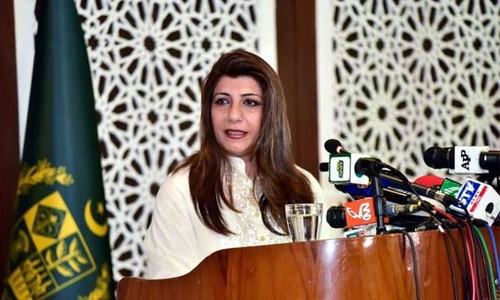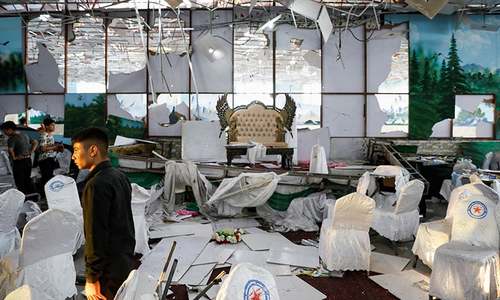Pakistan asks Afghanistan to hand over IS-Khorasan leader

Pakistan on Thursday asked Afghanistan to hand over Aslam Farooqi, the leader of the Afghan affiliate of the militant Islamic State (IS) group, who was arrested by Afghan authorities last week.
A Foreign Office statement said the Afghanistan ambassador to Pakistan was called to the Ministry of Foreign Affairs to convey Pakistan’s views with regard to the arrest of Islamic State Khorasan (ISIS-K) leader Farooqi, which was announced on April 5.
It was emphasised that Pakistan had been expressing its concerns about the activities of ISIS-K, "which were clearly detrimental to Pakistan", the FO spokesperson said, adding that Islamabad's position in this regard was being regularly shared with the Afghan government and others concerned.
Related: ISKP: another emerging giant?
"It was underscored to the ambassador that since Aslam Farooqi was involved in anti-Pakistan activities in Afghanistan, he should be handed over to Pakistan for further investigations," the statement said.
The FO underlined during the meeting that the two countries should "coordinate actions against the menace of terrorism, including through established mechanisms", it added.
Afghanistan's National Directorate of Security (NDS) had arrested Farooqi, also known as Abdullah Orakzai, saying he was the mastermind of a recent attack on a gurdwara in Afghanistan.
At least 25 people were killed in the attack on the Sikh temple in Kabul on March 25 where worshippers were offering morning prayers. The attack was claimed by IS.
Pakistan had earlier this week rejected reports circulating in the Indian media that linked Pakistan's security agencies to the attack on the gurdwara.
A report by Indian publication India Today had quoted Afghanistan's NDS as claiming that Farooqi had ties with Pakistan's premier intelligence agency, the Inter-Services Intelligence (ISI).
The report also claimed that Farooqi enjoyed "close relations" with the Haqqani network and the Lashkar-e-Taiba (LeT).
Responding to the allegations, the Foreign Office had said that it rejected the "officially-inspired reports" and termed them part of a "well-known smear campaign against Pakistan".













































